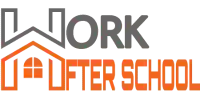If Belgium is your preferred study destination, that’s a good decision because this country has invested so much in education already. However, you need a study visa to move to Belgium. As part of the process, you have to pass the Belgian study visa interview. In this post, we will talk about the Belgium student visa interview questions and answers that will help you to succeed.
Don’t be scared—Belgium has a study visa approval rate of 70% to 85%, depending on your country. So, the rejection rate is fairly low. I’m going to talk about the Belgium student visa interview tips that you need to know. By this point, you have secured your admission and applied for the visa. I’ll offer you a bunch of tips to help you get through this phase. There’s no need to worry; it’s not that complicated. If you have been handling your visa and admission applications yourself and genuinely want to study in Belgium, then you will pass this interview. What I’m saying is, it’s essentially about sharing your story.
Belgium Student Visa Interview Questions

The interviewer is going to be separated from you by a glass. So, it can sometimes be a tense interview. However, you have to be natural in your responses and that’s really all you need. Do not give scripted responses that sound rehearsed. That said, let’s get in and look at the common questions you should really prepare for.
1. Why do you want to study in Belgium?
As part of the Belgium student visa interview questions, you may first be asked why you are interested in Belgium after you introduce yourself. This is a simple question that only requires your honest intention. You do have a reason for choosing Belgium. It could be because of the low cost of living as a student. For instance, in a city like Brussels, you are looking at around 600-800 EUR per month. You can also mention that you intend that Belgium has some of the most highly ranked universities in the world. For instance, according to Times Higher Education, Belgium universities currently rank in the top 50. We have KU Leuven in the 45th in the world. Just provide the reason that attracted you to Belgium.
2. How did you end up choosing this school?
You might think a question like this doesn’t matter to them, but it does. They will ask you questions such as, how did you end up choosing this school? Or what kind of research have you done beforehand about the school or about studying in Belgium in general? This is your chance to share your journey and your story of studying abroad in Belgium.
When did you decide to study abroad? Which schools did you consider? You can name a few schools. For example, in my case, I began applying to schools in the US back in 2022. I shared that story. I talked about the schools I applied to and shared that experience. So, you just need to explain how you discovered this school, and what led you to it. If you didn’t consider other schools and this was your first application, just say so.
How did you find the school, did you just search on Google for schools in Belgium or study abroad options? What drove your decision? Just share a brief story about it. And if your decision was influenced by someone’s recommendation, mention that someone recommended it to you. It’s something to think about because you’ll likely be asked about it.
3. What is the structure of the program you plan to study in Belgium?
Make sure you know how your program is laid out from beginning to end. You can check the school’s website for the course description. Know when you need to choose your courses, when your exams will take place, and when you’ll have breaks between semesters. Also, know when you’ll need to submit your thesis and when you’re expected to finish the program. You might even be asked to outline the curriculum of your chosen program. For example, if you are enrolling in a one-year master’s program that spans two semesters, with the option to take five or six courses per semester, decide which courses you’ll take. Whether you have made your course selections or not, just proceed. Remember, there’s an internship at the end. Let’s say you plan to complete a three-week internship in a specific field. By the end of it, say by September 2024, you should be graduating.
4. How will you finance your education and living expenses in Belgium?
This is one of the Belgium student visa interview questions that a lot of students fumble on when asked. Belgium may be doing well but they are not looking to add to their unemployment level. So, they won’t bring you here if you do not have sufficient funds. When explaining your sources of funding, talk about the amount as well. If you are being sponsored, talk about what the person does. You want the visa officer to understand that you really know so much about your funding.
5. Are you on a scholarship?
If you are on a scholarship, talk about it. Explain the type of scholarship it is and the sponsor or organization behind it. Let the officer know if it’s fully funded or partially funded, and how you plan to cover any remaining expenses.
6. Do you have any family or friends in Belgium?
It doesn’t matter if you have no family or friends in Belgium. If you have any, talk about them. Say their name, their address, and your relationship with the person.
7. Will you return after your study in Belgium?
As part of the Belgium student visa interview questions, you will be asked about returning to Belgium. In Belgium, you can work up to 20 hours a week as long as it does not interfere with your studies. However, you must not say to the officer that you plan to work. Remember, this is a study visa and not a work visa. If the officer gets the impression that you want to work, they may deny your visa application.
It’s uncertain what the future holds, and while you might consider staying abroad, the plan is to return home. Once you are back, consider how employable you are with your new degree. Research the job market in your country to see how people with your degree and experience fare. If you have a master’s in Chemical Engineering, for instance, find out which major companies in your home country might hire you. Identify which industries there would be interested in your skills. Be specific about potential employers, job roles you could fill, and even possible salaries. These details are important because they are considered by visa officers as factors that would encourage you to return to your country. Other factors include family ties, property, or investments you have back home. These aspects help convince a visa officer of your intent to return home after your studies.
Tips for Successful Belgium Student Visa Interview
Having talked about the Belgium student visa interview questions, let’s look at the helpful tips you need to pass this interview.
Be honest
The first piece of advice I want to share is about being honest. Lies at this point are not a good idea because when you apply for a visa in any country, they have access to your data and they check it. If there are discrepancies such as a different birthday or something else, they may deny your application. So, lying isn’t an option. If you don’t know any information you have previously submitted to any embassy, review your application forms. If they ask whether you have been denied a visa before or if you are banned from any country, you need to be truthful. These are facts and not something you can be vague about. So, go through your travel history, and check all the information you have submitted in the past, including your mother’s birthday. If you are not certain, verify it. Don’t make assumptions at this stage.
Know the structure of the study visa interview process
You start by preparing the necessary documents for submission. Then, make sure to arrive at the embassy on time, ideally about 15 minutes early, not too early or too late. Once inside and called into the interview room, you’ll meet with an officer who will ask you a series of questions. Depending on your answers on the form, they might ask you additional questions verbally. While some applicants might not face these oral questions, many do, often based on areas they couldn’t address in writing. The main thing to remember is that a large part of the process involves the written responses you provide before any verbal questions come into play.
Obtain your official admission letter early
You need to know the details about your school, your course, and where you’ll be studying. In your admission letter, look for the school’s official name, your course title, the length of the course including start and end dates, and the school’s official address. You can ask for your admission letter in advance. If this information isn’t in the letter, email the admissions office to get a copy.
Bring your invitation letter
Many people forget to print out their invitation letter. If you haven’t done so yet, please take a moment to jot this down on your list: print out your study visa interview letter and make sure to bring it with you.
Don’t be nervous
It’s easy to forget or become nervous when you’re in front of the visa officer, especially since this is a big day. It’s the day you’ve been preparing for, the day you pick out and iron your clothes for. So, remember to write down everything I’ve mentioned. Reflect on your own story and put it on paper. Get someone to quiz you with potential questions you’ve prepared. It’s like scripting a dialogue for yourself, where you play out the interview. For example, the visa officer might ask what course you’re applying for, and you’ll have your answer ready.
Practice and practice harder
They may ask about your employment prospects back in your home country, and you’ll have thought-out responses. Do not just write these down but practice them with friends or anyone willing to assist. Engage in mock interviews to gain comfort and familiarity with the dialogue. Preparation is important. Speaking to a stranger, especially one who might not even offer a smile, can be tough. That’s why you should rehearse.
Make sure your curriculum vitae (CV) is ready
Your CV is important because it outlines your professional and educational background. It’s not for submission but to give you a clear overview of your journey and why you’re pursuing further studies at this particular time and place. Your CV should only include information relevant to your field of study, highlighting experiences and education that connect to what you want to study. Think of it as telling your story: what you’ve done professionally and educationally up to now. For example, if you finished school in 2023, what have you been doing since then?
Talking about professional experience, it’s good to have experience related to the field of study you’re aiming for. The more relevant experience you have, the better your application looks. It helps make your application more cohesive and shows the visa officer how your past experiences connect to your future studies.
Know the curriculum of the program you are applying to
You should visit the program’s website, find the section that lists the curriculum or program details, and read through it. Look at the subjects you’ll study, and when you’ll study them, and read a brief description of each course. The idea is to understand how these courses relate to your undergraduate studies, especially if you’re applying for a master’s program. This helps you explain how you plan to build upon your previous education and how the new program fits into your career goals. Your admission is likely based on your undergraduate studies, and you should be able to connect your future studies to your past ones by understanding the course descriptions.
Keep your story concise and coherent
When preparing for my visa interview, I had to make sure my story was coherent. Coming from a political science background and aiming to study international politics, I needed to explain why I chose this field, address any gaps in my education, and discuss the job prospects after graduation. I wrote down a story that showed how the new program would advance my career in specific areas. This story should align with what you’ve written in your motivational letter but be simplified, like an elevator pitch – short and sweet.
Conclusion
So, we have touched on the common Belgium student visa interview questions and answers. It’s time for you to practice and prepare. This interview will last for about 15 to 30 minutes, so make the best of this timeline to impress the consular officer.
Read Also: Cheapest Country to Study Software Engineering


